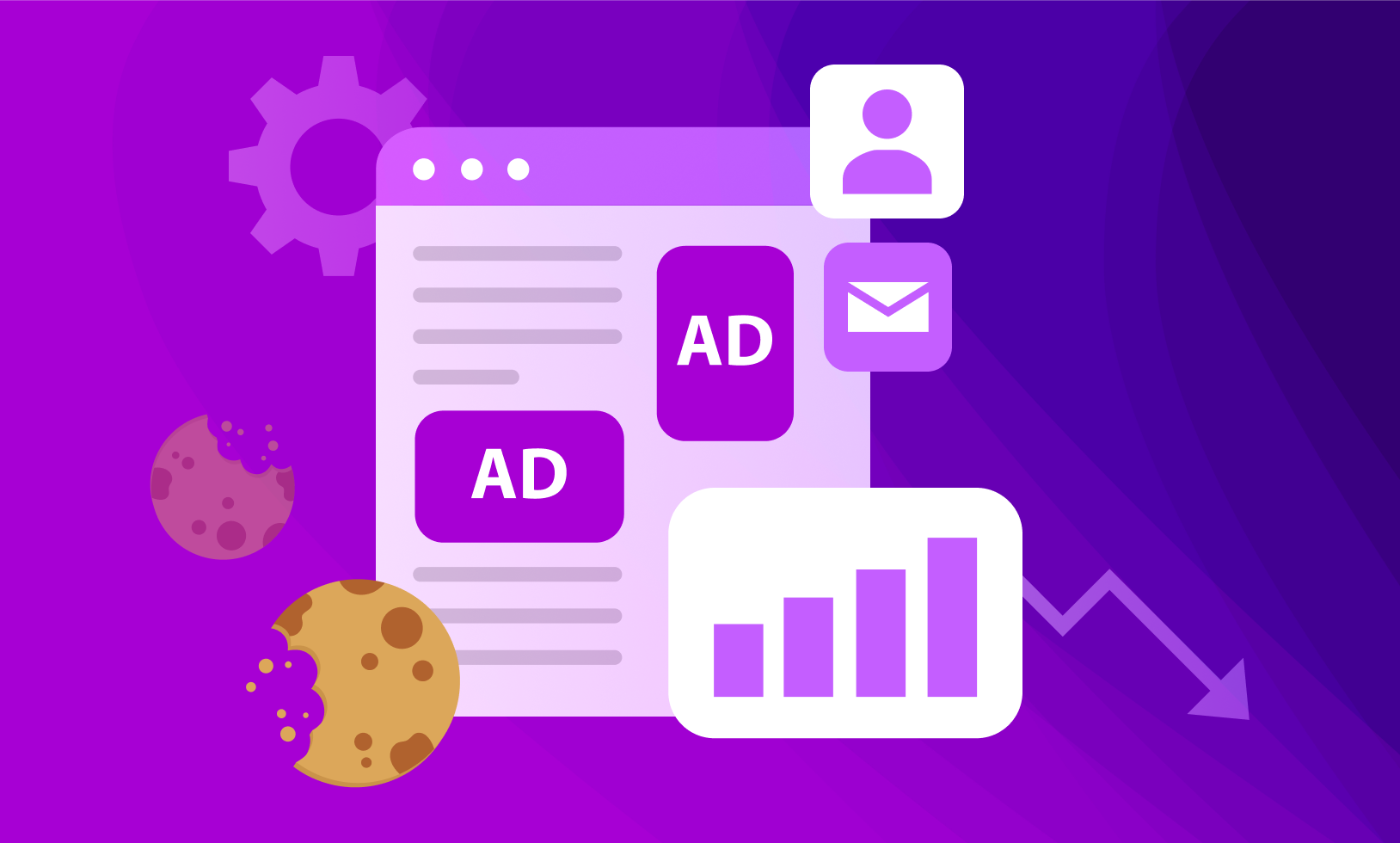The End of Third-Party Cookies: A Guide for Publishers

The deprecation of third-party cookies has been a long-anticipated shift in the digital advertising landscape. Originally planned for 2022, this deadline has faced multiple delays. The most recent update has pushed the deprecation from late 2024 to early 2025. Despite these delays, Google has already disabled third-party cookies on 1% of Chrome traffic. As the dominant browser with over 60% market share, Chrome’s transition away from third-party cookies will have profound implications for publishers, advertisers, and the entire ad tech industry. Publishers need to be prepared for this significant change.
Summary
- Understanding Third-Party vs. First-Party Cookies
- Importance of Cookie Deprecation on Chrome
- What is the Privacy Sandbox?
- What are Alternative Identity Solutions?
- Activating First-Party Data
- How Should Publishers Prepare for Third-Party Cookie Deprecation?
- User Consent Post-Third-Party Cookies
- Conclusion
Understanding Third-Party vs. First-Party Cookies
Third-party cookies are created by domains other than the one you’re currently visiting. These cookies are primarily used for tracking users across different websites and serving targeted advertisements. In contrast, first-party cookies are set by the website you are visiting. They store information like user preferences and browsing behavior to enhance the experience on that specific site.
Importance of Cookie Deprecation on Chrome
While many browsers have already blocked third-party cookies, Chrome’s market dominance and Google’s pivotal role in the advertising industry make this shift particularly significant. With Chrome holding over 60% of the browser market share, its changes will have a substantial impact on digital advertising practices. Google’s decision to phase out third-party cookies will push the entire industry to adapt, innovate, and explore new strategies for user tracking and ad targeting while maintaining ad revenue streams.
For the post-cookie world, Google and the rest of the industry are pursuing different approaches. Google is focusing on its Privacy Sandbox initiative, which avoids 1-to-1 tracking entirely and instead is targeting ‘cohorts’ of users with similar interests, with most data processing happening locally in the browser. In contrast, the broader industry is developing alternative identity solutions. These solutions are typically deterministic, relying on persistent identifiers like email addresses, or probabilistic, using algorithms and statistical models to infer user identities based on anonymized data points.
What is the Privacy Sandbox?
Google’s Privacy Sandbox is designed to create new web standards that enhance user privacy while still enabling effective advertising. Google’s approach avoids one-to-one user identification, as they believe such methods would not withstand future regulatory scrutiny and could erode user trust. Key components of the Privacy Sandbox include:
- Topics API: This replaces traditional cookie-based tracking by categorizing users into broad interest groups. Advertisers can target users based on these categories without detailed tracking.
- Protected Audience API (formerly FLEDGE): This API enables remarketing and custom audience targeting without revealing individual user identities.
- Attribution Reporting API: This tool measures ad conversions while protecting user privacy, ensuring advertisers can still gauge the effectiveness of their campaigns.
What are Alternative Identity Solutions?
The ad tech industry is actively developing alternative identity solutions to replace third-party cookies. Each approach has its benefits and drawbacks:
- Deterministic Solutions: These rely on explicit user data, such as email addresses or login information, to create persistent user identities across different platforms. Examples include Unified ID, RampID, and SharedID. Benefits include higher accuracy and reliability, but drawbacks include the need for user-provided data.
- Probabilistic Solutions: These use algorithms and statistical models to infer user identities based on anonymized data points. Companies like ID5 and Panorama ID provide probabilistic IDs. Benefits include broader reach and less reliance on explicit user data, but accuracy can be lower compared to deterministic methods.
- Hybrid Solutions: These combine deterministic and probabilistic approaches to achieve a more accurate and reliable identification system. These solutions aim to balance accuracy and privacy, but they can be complex to implement and manage.
Activating First-Party Data
With the deprecation of third-party cookies, leveraging first-party data becomes increasingly important. First-party data includes any information directly collected from your site’s users, such as the content they interact with, purchase history, and browsing behavior. By effectively using this data, you can create richer, more accurate profiles of your audience. Consider what first-party data you have available and how you can expose this information to the bid stream to enhance targeting and ad relevancy.
How Should Publishers Prepare for Third-Party Cookie Deprecation?
To successfully navigate this transition, publishers should take a proactive approach. It’s crucial to test both the Privacy Sandbox APIs and alternative identity solutions to determine what works best for your needs. If you have a significant base of logged-in users, implementing a deterministic ID solution can provide higher accuracy and reliability. Additionally, working with multiple Supply-Side Platforms (SSPs) can diversify your ad revenue sources and reduce reliance on any single provider. Considering the complexity and rapid evolution of these changes, partnering with an expert like Clickio can provide invaluable support. Clickio is actively testing and optimizing various industry alternatives, helping you maximize ad revenue and enhance user experience.
User Consent Post-Third-Party Cookies
There is a common misconception among publishers that user consent will become irrelevant once third-party cookies are deprecated. However, user consent remains a cornerstone of digital advertising. Both Privacy Sandbox solutions and alternative identity frameworks require user consent to function effectively. Implementing a robust Consent Management Platform (CMP) is crucial for ensuring compliance and maintaining user trust.
Conclusion
The deprecation of third-party cookies in Chrome represents a significant shift in the digital advertising world. By understanding these changes and preparing proactively, publishers can continue to thrive in a privacy-first web environment. Collaborating with knowledgeable ad tech companies like Clickio, and staying informed about new developments, will be essential for successfully navigating this transition. Clickio’s expertise in testing and optimizing various industry alternatives can help publishers maximize ad revenue and improve user experience in this new landscape.
